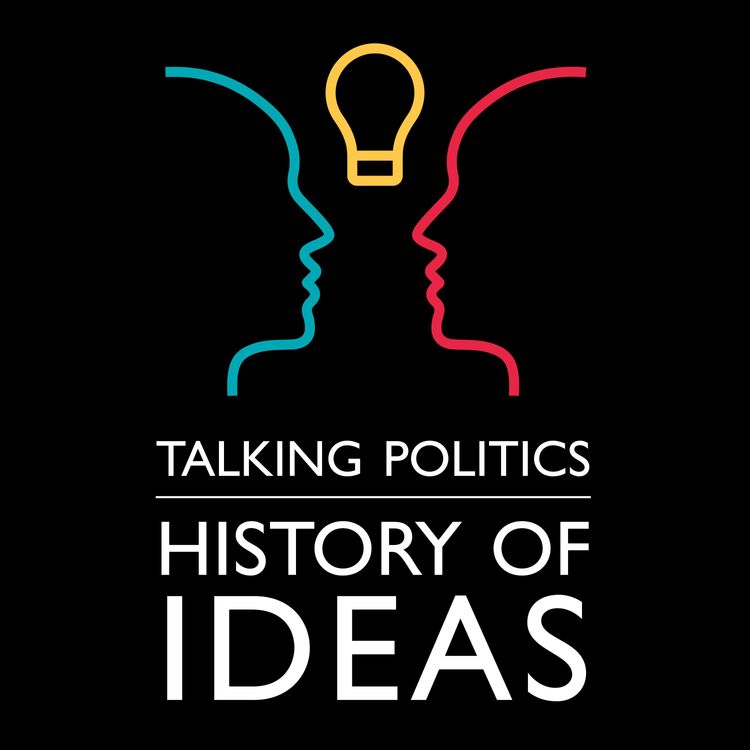Share

Talking Politics: HISTORY OF IDEAS
Hobbes on the State
•
Thomas Hobbes’s Leviathan (1651) reimagined how we could do politics. It redefined many of the ideas that continue to shape modern politics: representation, sovereignty, the state. But in Leviathan these ideas have a strange and puzzling power. David explores what Hobbes was trying to achieve and how a vision of politics that came out of the English civil war, can still illuminate the world we live in.
Free online version of the text:
Recommended version to purchase:
Going Deeper:
- David Runciman, ‘The sovereign’ in The Oxford handbook of Hobbes (Oxford: Oxford University Press, 2013)
- Richard Tuck, Hobbes a Very Short Introduction (Oxford: Oxford University Press, 2002)
- (Video) Quentin Skinner, ‘What is the state? The question that will not go away’
- (Video) Sophie Smith, ‘The nature of politics’, the 2017 Quentin Skinner lecture.
- Noel Malcolm, Aspects of Hobbes (Oxford: Oxford University Press, 2004)
- David for The Guardian on Hobbes and the coronavirus
More episodes
View all episodes

History of Ideas Q and A
39:48|A special episode in which David answers some of the audience's questions about the second series of History of Ideas. From how he chooses which writers and works to talk about, to whether Boris Johnson is the ultimate Benthamite and whether the idea of a pleasure machine isn't - in fact - totally rational. We really enjoyed making these podcasts for people to enjoy during lockdown. To support History of Ideas and Talking Politics, you can become a member by clicking here. For £3 a month, you can enjoy Talking Politics without adverts in the middle of the discussions. Thank you for listening!
Shklar on Hypocrisy
46:11|Judith Shklar’s Ordinary Vices (1984) made the case that the worst of all the vices is cruelty. But that meant we needed to be more tolerant of some other common human failings, including snobbery, betrayal and hypocrisy. David explores what she had to say about some of the other authors in this series – including Bentham and Nietzsche – and asks what price we should be willing to pay for putting cruelty first among the vices.Recommended version to buyGoing Deeper:David Runciman, Political Hypocrisy (2008)Katrina Forrester, ‘Hope and Memory in the thought of Judith Shklar’, Modern Intellectual History (2011)Samantha Ashenden and Andreas Hess, 'The Theorist of Belonging', Aeon (2020)[Audio]: 'The Moral Philosophy of the Good Place,' Vox
Nozick on Utopia
45:58|Robert Nozick’s Anarchy, State and Utopia (1974) was designed as a rebuttal to Rawls but it was so much more than that. It offered a defence of the minimal state that appealed to the writers of The Sopranos and a vision of utopia that appealed to the founders of Silicon Valley. David explores what Nozick wanted to achieve and identifies the surprising radicalism behind his political minimalism.Recommended version to buy Going Deeper:Robert Nozick, The Examined Life (1989)Jonathan Wolff, Robert Nozick: Property, Justice and the Minimal State (1991)Stephen Metcalf, ‘The Liberty Scam’, Slate (2011)[Video] Shelly Kagan, 'Hedonism and Nozick's Experience Machine' (from Open Yale Courses)
Rawls on Justice
48:00|John Rawls’s A Theory of Justice (1971) changed the face of modern political philosophy by reinventing the question of what constitutes fairness. From ‘the veil of ignorance’ to ‘reflective equilibrium’ it introduced new ways of thinking about the problem of justice along with new problems for thinking about politics. David discusses Rawls’s influence on what happened next.Recommended version to buyMichael Sandel, Liberalism and the Limits of Justice (1982, 1998) Susan Moller Okin, Justice, Gender, and the Family (1989)Katrina Forrester, In the Shadow of Justice: Postwar Liberalism and the Remaking of Political Philosophy (2019)[Audio]: 'John Rawls' A Theory of Justice,' BBC Radio 3, Arts & Ideas
De Beauvoir on the Other
47:54|Simone de Beauvoir’s The Second Sex (1949) is one of the founding texts of modern feminism and one of the most important books of the twentieth century. It covers everything from ancient myth to modern psychoanalysis to ask what the relations between men and women have in common with other kinds of oppression, from slavery to colonialism. It also offers some radical suggestions for how both women and men can be liberated from their condition.Recommended version to buyGoing Deeper: Madeline Gobeil, ‘Simone de Beauvoir, The Art of Fiction No. 35,’ The Paris Review (1965)Sarah Bakewell, At the Existentialist Café: Freedom, Being, and Apricot Cocktails (2016) Kate Kirkpatrick, Becoming Beauvoir (2019) [Audio]: Simone de Beauvoir, In Our Time
Schumpeter on Democracy
47:47|Joseph Schumpeter’s Capitalism, Socialism and Democracy (1942) contains a famous, and minimal, definition of democracy as the competition between political elites to sell themselves to the electorate. Schumpeter wanted to debunk more elevated ideas of the common good and the popular will. Why then has his theory proved so influential for people who want to rescue democracy as much as those who want to diminish it?Recommended version to buyGoing Deeper:Ian Shapiro, The State of Democratic Theory (2006)Thomas K. McCraw, Prophet of Innovation: Joseph Schumpeter and Creative Destruction (2007)Jill Lepore, ‘The Disruption Machine, New Yorker (2014)(Audio): Creative Destruction, BBC Radio 4
Schmitt on Friend vs Enemy
45:44|Carl Schmitt’s The Concept of the Political (1932) has been hugely influential on the left as well as the right of political debate despite the fact that its author joined the Nazi Party shortly after its publication. David explores the origins of Schmitt’s ideas in the debates about the Weimar Republic and examines his critique of liberal democracy. He asks what Schmitt’s distinction between friend and enemy has to teach us about democratic politics today.Recommended version to buyGoing Deeper: Jan-Werner Mueller, A Dangerous Mind: CarlSchmitt in Post-War European Thought (2003)Tamsin Shaw, ‘William Barr: The Carl Schmitt ofOur Time,’ New York Review of Books (2020)Chang Che, ‘The Nazi Inspiring China’s Communists,’ The Atlantic (2020)(Audio): Carl Schmitt on Liberalism
Luxemburg on Revolution
46:00|Rosa Luxemburg wrote ‘The Russian Revolution’ (1918) from a jail cell in Germany. In it she described how the Bolshevik revolution was going to change the world but also explained how and why it was already going badly wrong. David explores the origins of Luxemburg’s insights, from her experiences in Poland to her love/hate relationship with Lenin. Plus he tells the story of her terrible end.Free version to downloadRecommended version to buyGoing Deeper:Vladimir Lenin, ‘What Is to be Done?’ (1902)Hannah Arendt, ‘A Heroine of Revolution,’ The New York Review of Books (1966)Kate Evans, Red Rosa (2015)(Audio): In Our Time, 'Rosa Luxemburg' (2017)
Nietzsche on Morality
46:57|Friedrich Nietzsche’s masterpiece The Genealogy of Morality (1887) sets out to explain where ideas of good and evil come from and why they have left human beings worse off. He traces their origins in what he calls the slave revolt in morality. David examines the ways Nietzsche’s story unsettles almost everything about modern social conventions and leaves us with the troubling question: what can possibly come next?Free versionRecommended version to buyGoing deeper:John Kaag, Hiking with Nietzsche: On Becoming Who You Are (2018)Sue Prideaux, I Am Dynamite!: A Life of Friedrich Nietzsche (2018)Alex Ross, 'Nietzsche's Eternal Return,' The New Yorker (2019)(Audio): In Our Time, 'Nietzsche's Genealogy of Morality (2017)